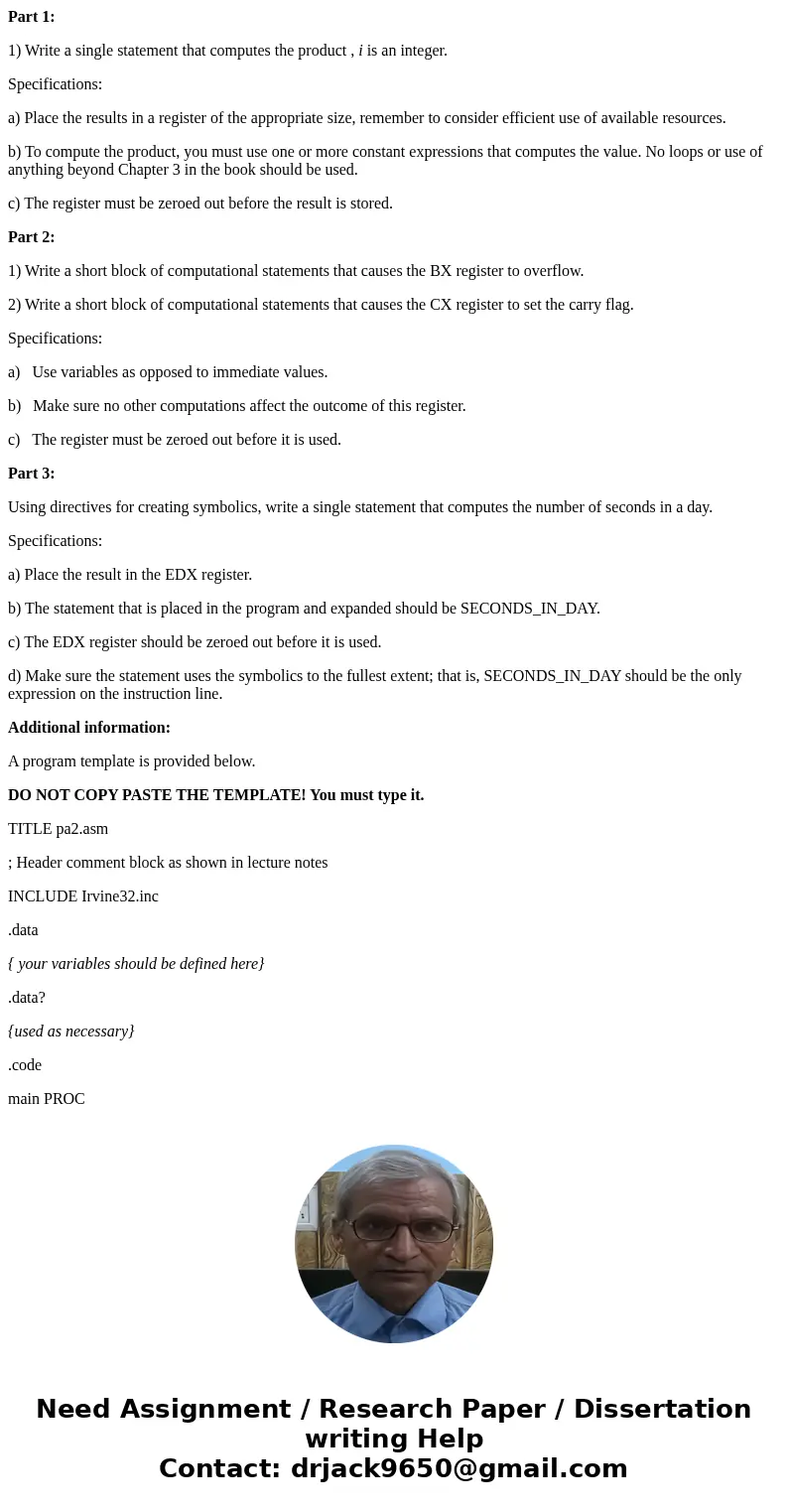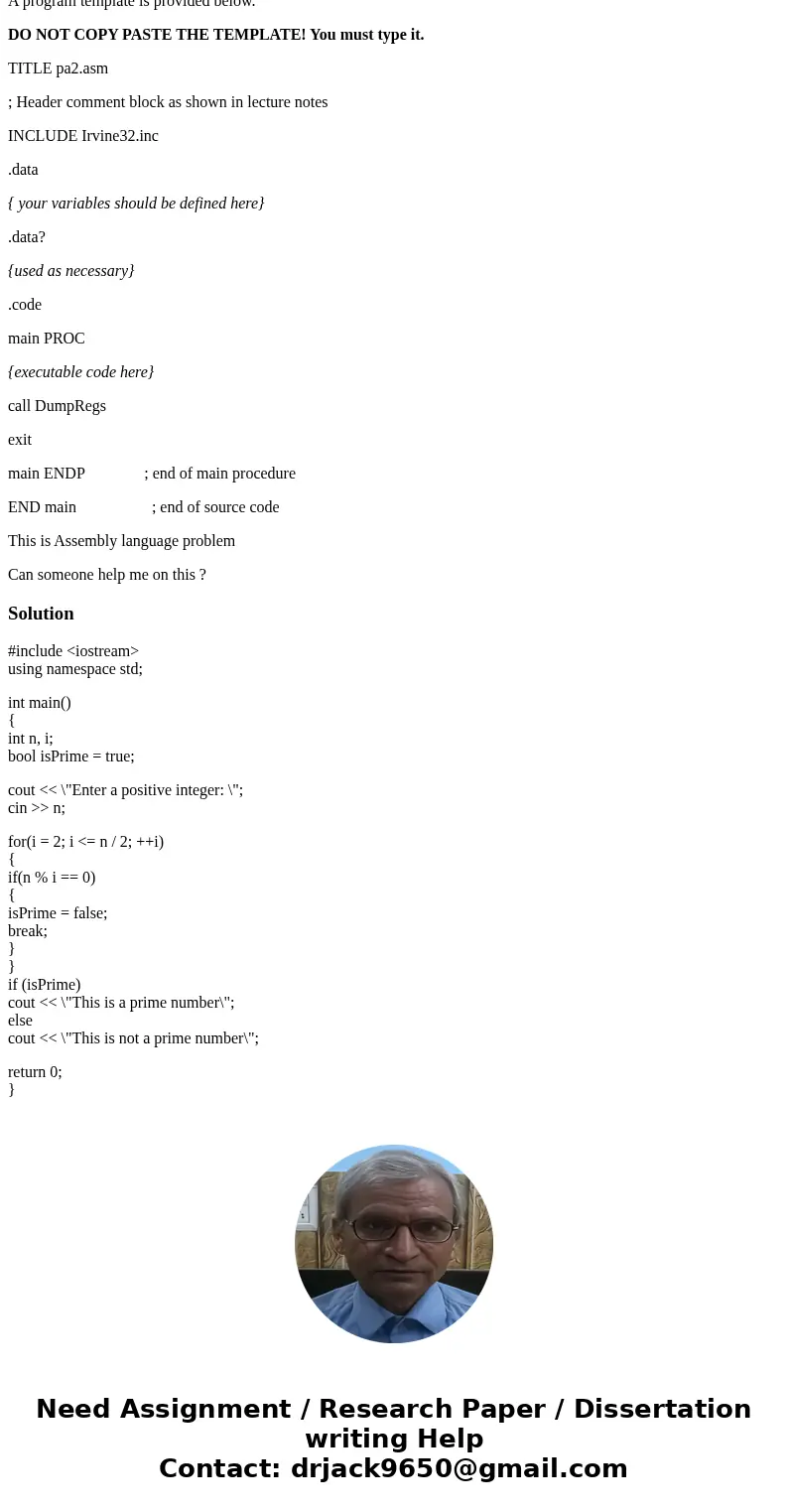Part 1 1 Write a single statement that computes the product
Part 1:
1) Write a single statement that computes the product , i is an integer.
Specifications:
a) Place the results in a register of the appropriate size, remember to consider efficient use of available resources.
b) To compute the product, you must use one or more constant expressions that computes the value. No loops or use of anything beyond Chapter 3 in the book should be used.
c) The register must be zeroed out before the result is stored.
Part 2:
1) Write a short block of computational statements that causes the BX register to overflow.
2) Write a short block of computational statements that causes the CX register to set the carry flag.
Specifications:
a) Use variables as opposed to immediate values.
b) Make sure no other computations affect the outcome of this register.
c) The register must be zeroed out before it is used.
Part 3:
Using directives for creating symbolics, write a single statement that computes the number of seconds in a day.
Specifications:
a) Place the result in the EDX register.
b) The statement that is placed in the program and expanded should be SECONDS_IN_DAY.
c) The EDX register should be zeroed out before it is used.
d) Make sure the statement uses the symbolics to the fullest extent; that is, SECONDS_IN_DAY should be the only expression on the instruction line.
Additional information:
A program template is provided below.
DO NOT COPY PASTE THE TEMPLATE! You must type it.
TITLE pa2.asm
; Header comment block as shown in lecture notes
INCLUDE Irvine32.inc
.data
{ your variables should be defined here}
.data?
{used as necessary}
.code
main PROC
{executable code here}
call DumpRegs
exit
main ENDP ; end of main procedure
END main ; end of source code
This is Assembly language problem
Can someone help me on this ?
Solution
#include <iostream>
using namespace std;
int main()
{
int n, i;
bool isPrime = true;
cout << \"Enter a positive integer: \";
cin >> n;
for(i = 2; i <= n / 2; ++i)
{
if(n % i == 0)
{
isPrime = false;
break;
}
}
if (isPrime)
cout << \"This is a prime number\";
else
cout << \"This is not a prime number\";
return 0;
}


 Homework Sourse
Homework Sourse